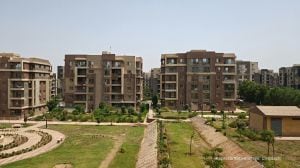In TN village, families face church boycott for sending away kids to study
The fishing village of Kovalam on the outskirts of Nagercoil is as breathtaking as its namesake in Kerala. But beneath the calm is turmoil.

The fishing village of Kovalam on the outskirts of Nagercoil is as breathtaking as its namesake in Kerala. But beneath the calm is turmoil.
Sixteen families have been ostracised for sending their children to English medium schools outside. They had defied the diktat of the local church.
On June 11, 1997 the church put up a plaque saying the villagers had decided that children should study in the village school to help its growth. ‘‘Otherwise, the adult family members of the children would be deprived of general benefits.’’
Another edict dated June 28, 1997, said all those who embraced other religious orders should not live in Kovalam village.
The ban continued to be in force and the church ensured that the 16 families who put their children in English medium schools outside the village suffered.
St Ignatius, the only school in the village with classes up to eighth standard, teaches in Tamil medium.
‘‘We want our children to learn English. What’s wrong with that? We did not get such opportunities. Why can’t we have such aspirations for our children?,’’ asks Bengar, whose son Beirn Carmel, studying in Class V goes to Matha Matriculation in Kanyakumari.
‘‘This year I will put my daughter Tina in Kindergarten in the same school,’’ he says defiantly. But the family is facing a social ban. They are left out of church functions and the threat that their family members who die would be deprived a Christian burial hangs heavily over them.
In fact, when the tsunami swept away 88 huts and damaged several houses, including that of Bengar, only government relief reached his family. He and 15 other families facing the boycott, were deprived of the NGO largesse, routed through the church.
‘‘No one dares to defy the church. Everyone bows to its commands,’’ points out Balan Sesuraj. He would soon be defying the ban himself and sending his five-year-old daughter to an English medium school. His four-year-old son will follow suit next year.
Balan’s brother, Charles Mesmin, is the vice-president of the all-powerful parish council which controls the village and lays down the rules. Not that it would make a difference to Balan. He is quietly preparing his family for the social boycott.
In the case of Siluvai Das, whose daughter and son studied in Visakhapatnam while he worked there for some years, the church refused to perform the First Holy Communion when they came back to settle down in the village. His attempts to reason out with the church that he had no option but to leave for Vizag to earn a livelihood fell on deaf ears.
Frustrated, he threatened to file a police complaint. The church quickly performed the ceremony, if only to avoid the unpleasantness of involving the police in local matters. But the objectionable plaque on the church wall remained.
Defending the church, Manohar, a parish council member, claimed the school rolls had been dangerously thinning and something had to be done to increase the number of students. ‘‘That is why the restriction was brought in.’’
Livid villagers pointed out that their basic rights were being snatched with the church dictating to them what they should do. ‘‘But no one has the guts to fight the church,’’ says Balan.
Father Joseph Justus, the present parish priest, was not available for comment.
- 01
- 02
- 03
- 04
- 05































